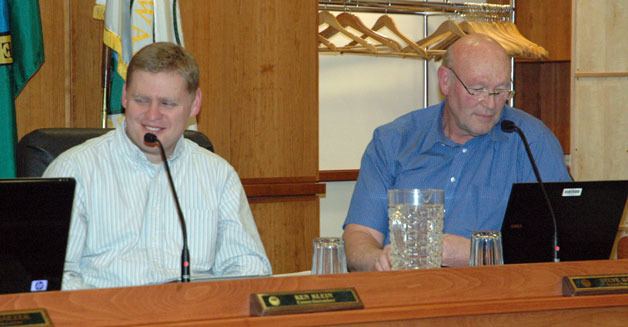ARLINGTON — The Arlington City Council voted unanimously yet again on Feb. 4 to extend their moratorium on medical marijuana dispensaries and collective gardens by another six months, following a public hearing with no comments from the audience.
“We usually don’t schedule a vote the same night as a public hearing, but the existing moratorium would have expired Feb. 14, which would have created a 10-day gap before a new moratorium would be effective,” Arlington Assistant City Administrator Kristin Banfield said. “The Council was very comfortable with extending it one more time, while we wait for further clarification from the state on the entire marijuana issue, not just medical marijuana.”
The original six-month moratorium dates back to Aug. 15, 2011, one month after the Marysville City Council voted unanimously to impose a six-month moratorium on the establishment, licensing or permitting of medical marijuana dispensaries or collective gardens, when the Arlington City Council did the same.
Although the possession and use of one ounce or less of marijuana became legal in the state of Washington as of Dec. 6 of last year, how this new law would be enforced and prosecuted has remained an open question in many jurisdictions.
Arlington City Attorney Steve Peiffle has had his own staff looking at this issue, albeit more at a staff level than an attorney one, but he’s stated that he would prefer to defer to “the federal response” for guidance on marijuana’s legal status overall.
During a number of previous meetings which had also extended the moratorium, Arlington City Council members and city staff members alike have frequently echoed the concerns of their counterparts in Marysville, such as when Gloria Hirashima, community development director for the city of Marysville, warned last summer that both cities should consider the appropriate minimum distances that such facilities should be located from schools, day cares, youth centers and churches, a task which all the city officials agreed is complicated by the lack of data on the subject.







